Cargando...
Recursos educativos
-
Nivel educativo
-
Competencias
-
Tipología
-
Idioma
-
Tipo de medio
-
Tipo de actividad
-
Destinatarios
-
Tipo de audiencia
-
Creador
Lo más buscado
- Congruencia de triángulos
- Aprender a multiplicar
- Actividades de geometría tercero
- Leonardo da Vinci
- Actividades de geometría séptimo
- Alimentos transgénicos
- Juegos de tablas de multiplicar primero
- Actividades de lógica séptimo
- Juegos para pintar en parvularia
- Términos geográficos
- Día mundial del agua
- Comunicación animal
- Realidad aumentada
- ejercicios lengua
- Imprimir números romanos
-
Self-evaluation 5.04 - The Great Peninsular Kingdoms
EduBook Organización
- 4519 visitas
Are the following sentences true or false?: Petronilla of Aragon married Ferdinand III of Castile in 1137. The Battle of Navas de Tolosa meant the victory of the peninsular kingdoms over the Almohads.…
-
Initial evaluation 15.02 - Human Societies
EduBook Organización
- 4332 visitas
Human societies have evolved over time. Match the characteristics with each type of society: The social and political model is authoritarian and hierarchical. Unions representing workers begin to…
-

Patricians and plebs
EduBook Organización
- 4241 visitas
Roman citizens were divided into two main social groups: patricians and plebs. Patricians were a minority of the population. They were descendants of the aristocratic families that founded Rome. They…
-
Initial evaluation 02 - The Spanish economy
EduBook Organización
- 4147 visitas
Are the following sentences true or false? The agricultural and livestock sector benefited from Spain joining the European Union. The area of Spain with the highest concentration of industry is in the…
-

The Neolithic Age: food production
EduBook Organización
- 3477 visitas
About 10000 years ago, people began producing their own food. This happened in an area of the Middle East known as the Fertile Crescent. This new age is called the Neolithic Age. 3.1. Agriculture and…
-

Pre-Roman peoples: the Iberians and the Celts
EduBook Organización
- 3237 visitas
1.1. The Iberians From the middle of the 6th century BC, the Iberians became established in the east and south of the Peninsula. They developed close relations with the colonisers from other parts of…
-
True/false. Protagonists in the expansion of Islam
EduBook Organización
- 2534 visitas
Decide whether the following statements about the expansion of Islam are true or false: Islam expanded quickly under the rule of the first three caliphs. The Berbers were nomadic tribes from the Maghreb…
-
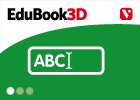
Correct. Summarising concepts
EduBook Organización
- 2458 visitas
Rewrite these sentences and correct the mistakes: Pigs are the most common form of livestock in the Meseta region. The Mediterranean landscape stretches along the coast, from the French border with…
-
Final self- evaluation 9.09 - The Habsburg Dynasty
EduBook Organización
- 2355 visitas
Match each event with the correct theme: Agriculture, raising livestock, industry and trade all decreased. The Treaty of the Pyrenees led to Rosellón and part of Cerdaña being given to the French. The…
-

Spanish society
EduBook Organización
- 2298 visitas
4.1. The transformation of Spanish society Until the end of the 1950s, Spain's economy and social structure depended on agriculture and livestock farming. After a period of industrialisation and…
Te estamos redirigiendo a la ficha del libro...













